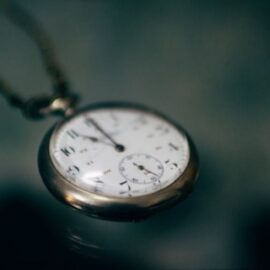

This article is an excerpt from the Shortform book guide to "The Courage to Be Disliked" by Ichiro Kishimi and Fumitake Koga. Shortform has the world's best summaries and analyses of books you should be reading.
Like this article? Sign up for a free trial here .
Are you looking for The Courage to Be Disliked quotes? Why do Kishimi and Koga believe that happiness is a choice?
In The Courage to Be Disliked, Ichiro Kishimi and Fumitake Koga argue that every problem you have in life has a single cause: You care too much about what other people think of you. This Japanese self-help bestseller is based on the theories of the 20th-century psychologist Alfred Adler, who believed that every individual has the power to break free from past traumas and find happiness.
Below are five quotes from Kishimi and Koga with explanations and context.
The Courage to Be Disliked Quotes
In The Courage to Be Disliked, Ichiro Kishimi and Fumitake Koga present a radical and empowering new way of thinking that may transform your life. This self-help bestseller is based on the theories of the influential 20th-century psychologist Alfred Adler, who believed that every individual has the power to break free from past traumas and find happiness. By shattering the illusion that you must live up to the expectations of others to be happy, the authors reveal how to tap into the freedom and joy inherent in human existence.
Here are some of the best The Courage to Be Disliked quotes:
“The courage to be happy also includes the courage to be disliked. When you have gained that courage, your interpersonal relationships will all at once change into things of lightness.”
Kishimi and Koga note that even if unhappy people successfully earn the approval of others, they do so at great cost. By chasing approval, unhappy people ultimately end up living other people’s lives. Instead of pursuing their own goals, unhappy people follow the expectations of others, sacrificing their own desires (and happiness) in the process. For example, a young adult may decide to go to medical school to please their parents despite hating the idea of being a doctor.
“Your unhappiness cannot be blamed on your past or your environment. And it isn’t that you lack competence. You just lack courage. One might say you are lacking in the courage to be happy.”
The authors claim that, although poor childhood experiences may have influenced you to set a certain goal, you chose what goal to pursue and the lifestyle best suited to get you there. For example, if your parents divorced when you were young, you may believe that all close relationships result in pain and consequently set the goal of avoiding intimacy with others to prevent them from hurting you. This goal may manifest itself in feelings of disgust for other people that influence you to become a misanthropic loner. However, you could just have easily set a different goal based on your childhood experiences—for instance, the goal of prioritizing your relationships above all else to prevent them from falling apart—and thus developed an entirely different lifestyle.
“Do not live to satisfy the expectations of others”
Kishimi and Koga argue that unhappy people make it their ultimate goal to earn the approval of others. In other words, unhappy people believe that the key to happiness is to be recognized as “good” by someone else. Kishimi and Koga make it clear that no matter who this external source of approval is—a teacher, a parent, society—the result is the same: unhappiness. Essentially, unhappy people all cling to the unhealthy belief that if others like you, it means you’re a “good person.”
Kishimi and Koga note that most unhappy people assume this need to be liked is an inescapable part of the human condition. Everyone craves approval, they think; it’s just how we’re built. These people have it backwards: Humans don’t crave approval because it makes us happy, approval makes us happy because we crave it.
“No experience is in itself a cause of our success or failure. We do not suffer from the shock of our experiences—the so-called trauma—but instead we make out of them whatever suits our purposes. We are not determined by our experiences, but the meaning we give them is self-determining.”
A common criticism of The Courage to Be Disliked is that Kishimi and Koga downplay the impact of trauma and blame victims for choosing the goals that lead to their own suffering.
Many experts maintain that trauma objectively causes damage, perhaps more so than Kishimi and Koga imply. In The Body Keeps the Score, Bessel van der Kolk explores the various ways in which traumatic events deeply scar the body and mind. Trauma victims not only suffer emotional symptoms such as shame and numbness, but also physiological symptoms, including a hypersensitive stress response and disconnection from physical sensations in the body.
However, it’s possible that by diminishing the power trauma has over its victims, Kishimi and Koga are attempting to counteract learned helplessness—the state in which trauma patients believe they are unable to help themselves, and thus are unable to heal.
Van der Kolk explains that learned helplessness is a common symptom of trauma, and he agrees with Kishimi and Koga that learned helplessness is a dangerous dead end that must be overcome. For this reason, he warns against overreliance on psychoactive medication, as it may discourage patients from actively engaging in healing practices—for example, building relationships with trusted people and communities, or undergoing psychomotor therapy to reconnect the body and mind. By making the case that no one is helpless, Kishimi and Koga are encouraging trauma victims to take this kind of active role in their own recovery.
“The reason that so many people don’t really feel happy while they’re building up their success in the eyes of society is that they are living in competition.”
Kishimi and Koga argue that unhappy people choose to see life as a competition and other people as adversaries—if others win, it means you lose. Why is this the case?
Approval is often conditional—it depends on what you do. Some people will like you for making them laugh, others will like you for being generous and kind, and another may like you for achieving career success. These are difficult things to do, and no one would be able to do it all perfectly. This means that inevitably, someone else will be better at earning approval than you.
When others succeed, they’re raising the bar, making it more difficult for you to earn the same amount of approval. Kishimi and Koga explain that external approval is a zero-sum game—the better someone else does, the worse you look in comparison. In other words, the pursuit of external approval is, by nature, a competition, with winners and losers. For this reason, Kishimi and Koga assert that unhappy people fear the success of others. They celebrate the failures of those around them instead of offering support, preventing them from forming healthy relationships.

———End of Preview———
Like what you just read? Read the rest of the world's best book summary and analysis of Ichiro Kishimi and Fumitake Koga's "The Courage to Be Disliked" at Shortform .
Here's what you'll find in our full The Courage to Be Disliked summary :
- Why you care too much about what other people think of you
- How to tap into the freedom and joy inherent in human existence
- How to overcome trauma from your past







Ichiro Kishimi and Fumitake Koga show how we imprison ourselves in a fiction of our own shame and unworthiness, and that it is possible for each of us to escape.